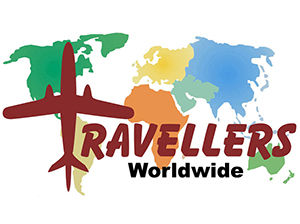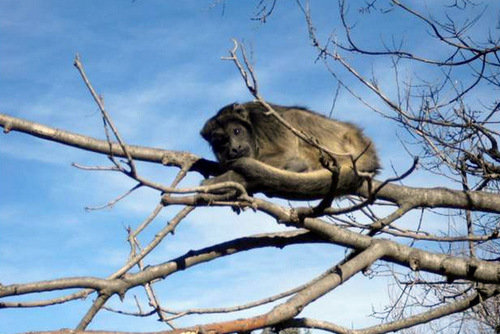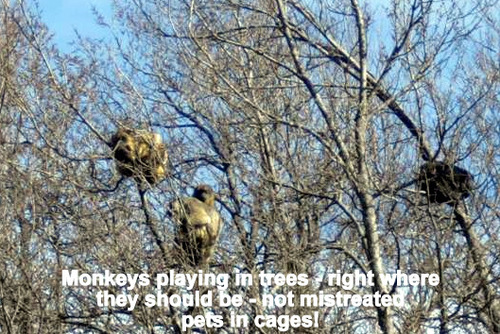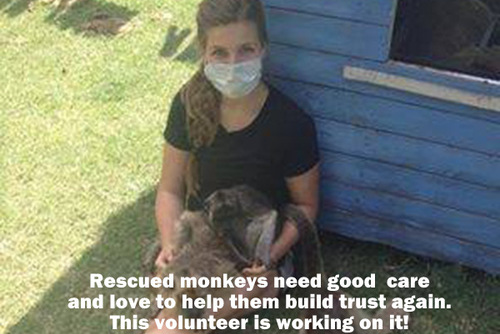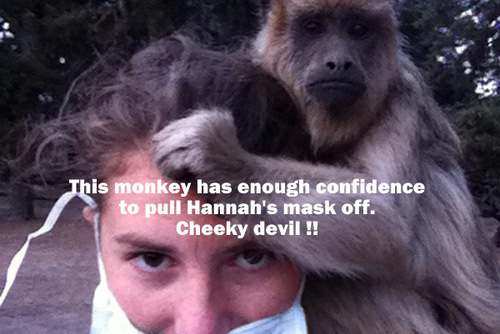This project is ideal for those who are looking to gain experience with animals, and people who are skilled in a certain area. Biologists, veterinarians, naturalists, administrators, technicians, web designers, and filmmakers have each made their contribution and have helped build this project over time. The Rehabilitation Centre that you’ll work at is situated near La Cumbre, in Cordoba Province. The Centre has been successfully running the monkey rehabilitation programme for 14 years and has already made a fantastic contribution to the conservation efforts of this species.
There are three key challenges facing Howler Monkeys in Argentina at present, all of which are sadly contributing to their decline:
- Firstly, their natural environment is declining at an alarming rate due to forestry and agricultural activities. This reduces the natural habitat in which they can live.
- Poaching is also widespread, with many baby monkeys being illegally separated from their mothers and sold on as pets. It is estimated that, sadly, only one baby out of every six that are captured survives.
- Out of the monkeys that are kept as pets, many are mistreated and eventually abandoned – leaving them extremely vulnerable in the wild.
The monkeys that are fortunate enough to be rescued are brought into the Centre, often in a terrible condition. Many are malnourished, and unable to fend for themselves after being separated from their mother. The work of this project is absolutely vital in ensuring the monkey population in Argentina does not decline any further.
The project has three main aims – to rescue, rehabilitate and eventually release the monkeys back into the wild, so that they are self-sufficient. Some monkeys are unfortunately unable to be rehabilitated due to their condition and, because of this, they are cared for permanently at the Centre.
WORK CONTENT:
All activities undertaken at the Centre are conducted with the primary objective of conserving the species and bringing as many benefits to them as possible, and, as such, you’ll be working on a range of tasks, depending on what’s required at the time. You’ll generally split your time between practical activities involving the general care of the monkeys, as well as research-based activities.
On arrival, you’ll be provided with an induction at the Centre, including a video demonstration explaining the various activities that take place at the Centre. On your first couple of days, you’ll most likely be paired up with another volunteer who has already been working at the Centre, which will enable you to learn first-hand about the work you’ll be doing.
The main activities that you’ll be involved with includes the following:
Feeding the Monkeys: the monkeys that are in the process of being rehabilitated need constant care and attention, and a huge part of this involves ensuring the monkeys are receiving the nutrients they need on a regular basis. Your work will involve preparing the food for the monkeys, and feeding them at designated times throughout the day. Caring for the Orphaned Baby Monkeys: The unfortunate result of baby monkeys being taken from their mothers at a young age means that they are not nurtured and are unable to fend for themselves – so a big part of this project involves providing the baby monkeys with the care that they so desperately needed from their mother.
Data Collection: A lot of the work at the Centre involves observing the species to monitor the success of the rehabilitation programme. For example, you may be required to study the interaction of the free social groups, and record this data. This data is vital in ensuring that the rehabilitation programme has been successful and that the monkeys released in groups (also known as ‘troops’) will eventually be self-sufficient.
Monkey Capture: During your programme, you may have the opportunity to assist with the rescue and capture of new monkeys in the surrounding forest. Due to the unpredictable nature of new captures, it is uncertain how often this will take place – but if it does, it’s an extremely exciting element of the project!
Cleaning and Maintenance: You'll also assist with the cleaning and upkeep of the Centre as a whole, which may include cleaning the enclosures and the plates used to feed the monkeys.
Construction: You may at times be asked to assist with general construction activities at the Centre, such as fixing enclosures or working on ways to improve the various facilities at the Centre.
Working in the Tree Plantation for the Monkeys: Some work is required in the tree plantation at the Centre, for instance by planting new trees that will be used during the rehabilitation process (please note that this is available during the winter-season only)
Care for Other Animals: As well as monkeys, there are also a number of domestic and other wild animals that you may be able to care for during your placement, including: dogs, cats, geese, horses, llama’s, donkeys, sheep, ducks, and chickens.
DAILY SCHEDULE:
Your work schedule may vary depending on the activities available at the site during your programme. Work is generally available from Monday through to Sunday, from 9am to 6pm – with a 30 minute break for lunch, but the project will arrange an individual work schedule with you on arrival.
WHAT YOU'LL GAIN FROM DOING THIS PROJECT:
- An exciting, never-to-be-forgotten adventure into South America and the culture of Argentina.
- The enormous satisfaction of helping conserving animals in their natural environment and knowing that you made a difference to them.
- You'll leave feeling very proud of yourself for having contributed to the quality of life and well-being of previously abused and battered animals.
- New skills, more confidence, a greater understanding of a different culture, invaluable personal and professional development.
- And best of all ... an unforgettable experience!
LOCATION
The rehabilitation Centre itself is located in the region of Tiu Mayu, approximately 11 kilometers from La Cumbre, in Córdoba province. La Cumbre is a small but charming mountain town, known for its pleasant year-round weather and typically English architecture. The presence of a large British community in the town of La Cumbre remains to this day. La Cumbre also offers a range of exciting activities throughout the year – such as hiking, horseback riding, mountain biking, paragliding and even skydiving!
YOUR ACCOMMODATION AND TRAVEL
You'll be accommodated on-site at the Centre itself, in a volunteer house. The accommodation is basic, but it is comfortable and has all of the facilities that you’ll need. Rooms are typically dorm-style with bunk beds, and you’ll most likely be sharing with up to 6 other volunteers on the project.

